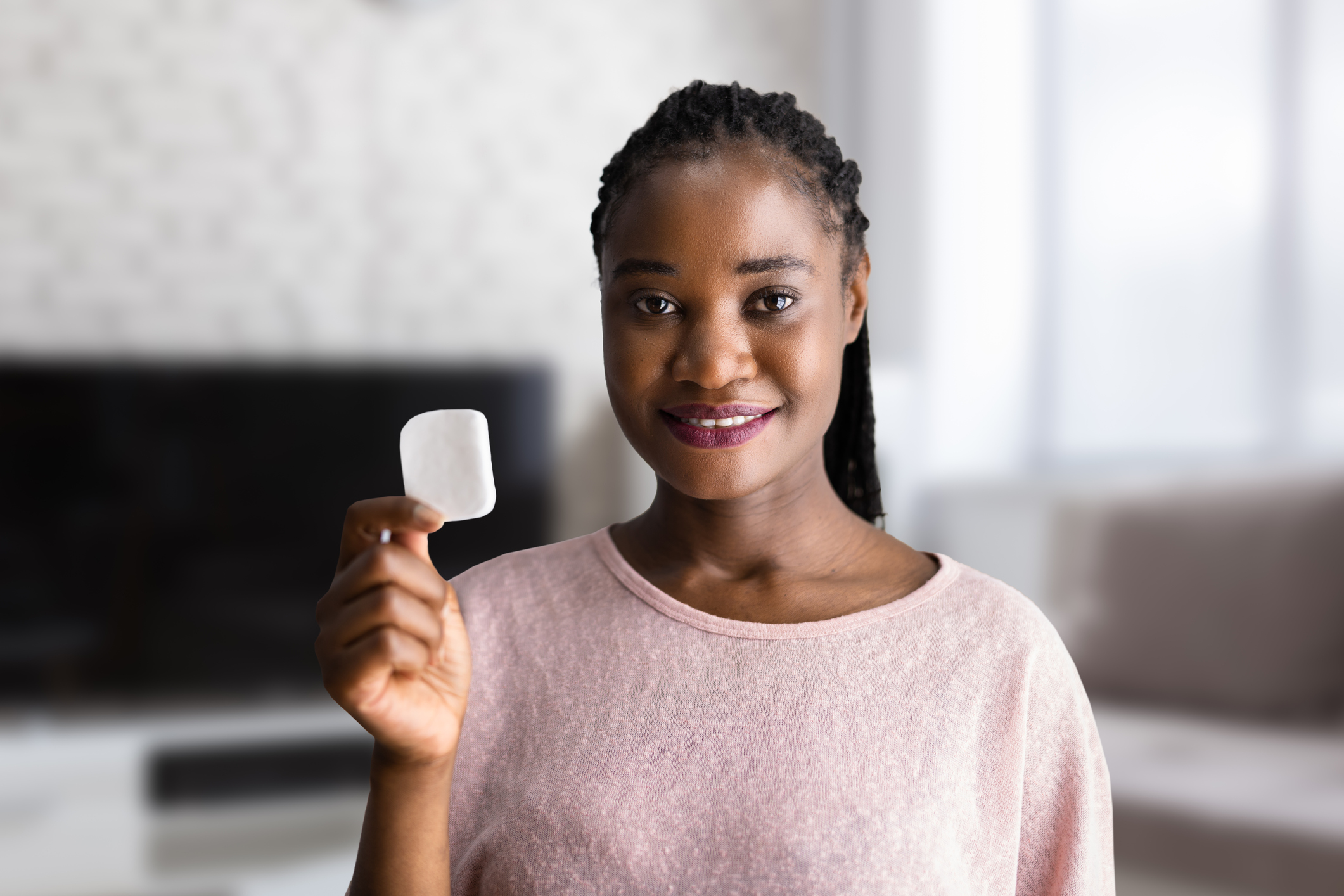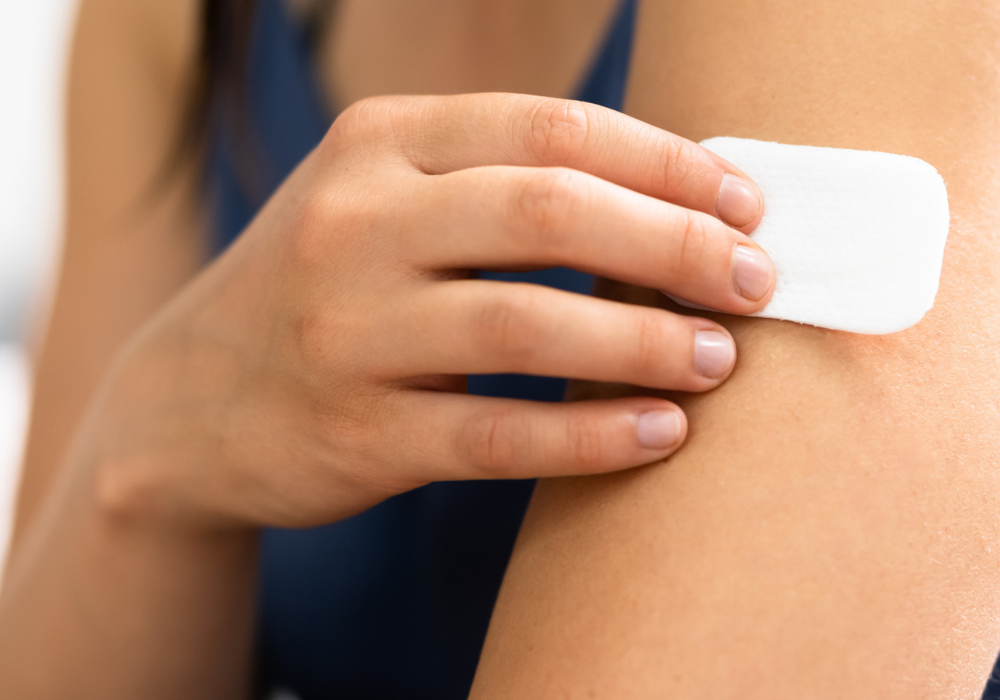
Celebrity news, beauty, fashion advice, and fascinating features, delivered straight to your inbox!
You are now subscribed
Your newsletter sign-up was successful
As nationwide shortages rock the UK.
You've likely seen the news that there's a nationwide HRT shortage in the UK that's set to affect up to a million women. So, do you know what actually happens when you stop taking HRT, for the thousands of women who will have no choice but to stop taking their medication over the coming months?
Good question - but first, a little on why the shortages are happening in the first place. Doctor Alona Pulde of nutrition app Lifesum reckons that it's a result of HRT prescription charges being lowered. "Demand is currently outstripping supply," she explains. "That, alongside manufacturing problems and issues such as Covid may also be contributing to the shortage by impacting access to ingredients."
Here, Pulde and Dee Murray, CEO and founder of Menopause Experts Group, explain what actually happens to your body when you come off the medication, should you be forced (or choose) to. Don't miss our guides to menopause, perimenopause symptoms, and menopause and sleep, while you're here. And remember - you are not alone.
What happens when you stop taking HRT?
Some background information for you - the HRT shortage really is pushing women to their limits. "Not only is the current shortage forcing women to ration their doses, but even get private prescriptions and access new supplies from abroad," explains Pulde.
Roughly one million women in the UK use hormone replacement therapy to treat the symptoms of menopause, according to the National Institute for Health and Care Excellence (Nice), and the shortage could have a potentially devastating impact on their health.
So what will happen if you do have to stop taking your medication? As Murray explains, women who come off HRT suddenly may start to see symptoms return quite quickly if they have been taking it for a long time.
Celebrity news, beauty, fashion advice, and fascinating features, delivered straight to your inbox!

“Reducing your HRT dose slowly is usually recommended, as it’s less likely to bring back symptoms in the short term, but there is no reason why you could not just go cold turkey and stop, other than the return of symptoms," she explains.
Do note here: If you experienced symptoms like hot flushes or sleep disturbances prior to having HRT, there is a good chance they will return, she explains. "However, the body may have had time to adjust, meaning they may not be too severe. Everybody is different," she stresses.
The NHS website agrees, further adding that gradually decreasing your HRT dose is usually recommended "because it's less likely to cause your symptoms to come back in the short term."
Do contact a GP if you have symptoms that persist for several months or any questions. They are there to help, after all.
5 tips for dealing with coming off HRT, if you run out of medication
Having to come off your medication cold turkey and worried about how your body might react? Try the following tips from our experts.
1. Eat enough tryptophan and phytoestrogens-rich foods
That's right - consuming enough foods that contain tryptophan - an essential amino acid - is important as it helps your body to manufacture the neurotransmitter serotonin. "Serotonin plays an important role in mood regulation, which is particularly important during menopause," explains Pulde.
Pile your plate high with good sources of tryptophan, which include:
- Tofu
- Nuts
- Seeds (particularly peanuts)
- Oats
- Legumes.
"Fruit is also a good source of tryptophan, especially apples, prunes, pineapples, bananas, kiwis and plums," shares the Doctor.
Not only that, but certain plant-based foods containing phytoestrogens may also help reduce symptoms and ease anxiety, shares Murray.
Try:
- Chickpeas
- Sesame seeds
- Nuts
- Dark leafy green vegetables
They are all "excellent", in the experts' opinion, for maintaining good hormonal health.
2. Opt for foods high in fibre
This will help to regulate your hunger signals, shares Pulde. "Opt for foods high in fibre, water, and nutrients, and low in fat, sugar and salt," advises the Doctor.
She recommends:
- Vegetables (kale, Swiss chard, beetroot, broccoli)
- Fruit (apples, pears, blueberries)
- Whole grains and legumes (black-eyed peas, kidney beans)
Why? "All of the above are rich in vitamins, minerals, antioxidants and phytochemicals and will not only optimise your health, but help to regulate your hunger signals, too."
Read our guide to the best smoothie recipes, while you're here.
3. Reduce your stress levels
While this is undoubtedly a very stressful time, relying on mindfulness techniques like breathwork, mediation and so on could help your mental health, if nothing else. "Taking up yoga or having cognitive behavioural therapy sessions with a psychotherapist can help reduce high levels of stress, worry and anxiety," explains Murray.
Read our guides to breathwork training, yoga poses, and online therapy, while you're here.
4. Recognise problem foods
Similarly, using a trial and error system - that is, recognising the foods that trigger migraines, hot flushes, anxiety, and heart palpitations is another key way of managing symptoms, shares the expert.
Top tip: Keep a food diary and learn what foods or drinks are triggers, she recommends. "Often it's simple things, like caffeine, which can be disguised in fizzy drinks or alcohol."
5. And remember, you are not alone
And finally, know that this is a totally unprecedented situation that no one could have foreseen. Still don't understand what happens when you stop taking HRT? Worried about running out of your prescription? Or no longer being about the get HRT over the counter?
Contact your doctor. They are best positioned - and properly qualified - to advise the best course of action.

Ally is Marie Claire UK's Senior Health and Sustainability Editor, a well-regarded wellness expert, ten-time marathoner, and Boston Qualifying runner.
Utilising her impressive skillset and exceptional quality of writing, she pens investigative, review and first-person pieces that consistently demonstrate flair and originality.
As well as writing, Ally manages a team of freelancers, oversees all commissioning and strategy for her pillars, and spearheads the brand's annual Women in Sport covers, interviewing and shooting the likes of Mary Earps, Millie Bright, and Ilona Maher. Shortlisted for three BSMEs and winning one in 2022, Ally lives and breathes her verticals: her eye for a story and connections within the wellness sphere are unrivalled. Follow Ally on Instagram for more.
